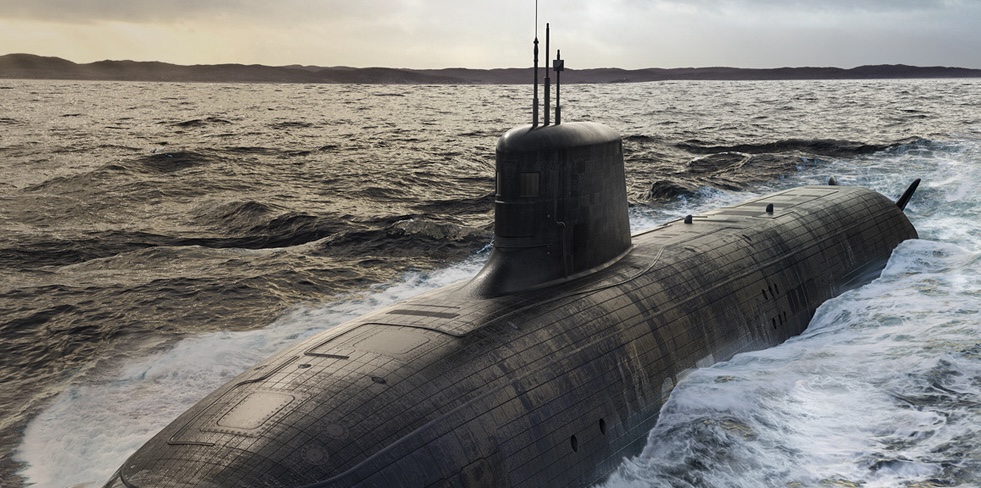
The U.K. Ministry of Defence awarded shipbuilder builder BAE Systems $4.95 billion in contracts to build its new class of nuclear attack boats for the Royal Navy and eventually Australia, the MoD announced on Sunday.
The award for the SSN-AUKUS will now allow BAE Systems to begin detailed design work for and to acquire long lead materials boats that will start construction in the late 2020s with the first boat to deliver in the 2030s.
“The funding follows the AUKUS announcement in March by the leaders of Australia, the U.K. and the United States. This will eventually see Australia and the U.K. operate SSN-AUKUS submarines, which will be based on the U.K.’s next generation design, incorporating technology from all three nations, including cutting-edge U.S. submarine technologies,” reads a statement from BAE Systems.
The new boats will eventually replace the current U.K.-built Astute-class in the Royal Navy and be the basis of Australia’s domestically built nuclear submarines.
“This multi-billion-pound investment in the AUKUS submarine program will help deliver the long-term hunter-killer submarine capabilities the U.K. needs to maintain our strategic advantage and secure our leading place in a contested global order,” U.K. Defense Secretary Grant Shapps said in a statement.
BAE said the work would add up to an additional 5,000 workers to its shipyard in north England. It would expand the yard to 15,000 workers.
“Construction of the U.K.’s submarines will take place principally in Barrow-in-Furness, while Australia will work over the next decade to build up its submarine industrial base, and will build its submarines in Australia with Rolls-Royce supplying the nuclear reactors for all U.K. and Australian submarines,” reads a statement from the U.K. MoD.
The MoD also awarded an engineering support contract to Babcock a parallel contract to provide input to the design for the new boat.

The award follows the March announcement this year from leaders from Australia, U.S. and the U.K. that laid out the specific goals for the countries over the two decades.
The SSN-AUKUS is the major push in the third phase of the program that follows the first phase deploying U.S. and U.K. nuclear submarine to western Australia and the second phase where the U.S. sells up to five Virginia-class submarines.
In an interview with USNI News last month, U.K. Royal Navy’s First Sea Lord Adm. Ben Key told USNI News last month the industrial base considerations in Australia was key in developing SSN-AUKUS attack boats.
“What are the kind of the industrial options for how they would do it? You know, the more detailed planning that will allow Australians to create a nuclear submarine building capability whilst also ensuring that we move to them gaining SSN-AUKUS,” Key said.
For Australia, developing their own industrial base capacity is the largest barrier to creating their own domestically built submarine program, the head of the Royal Australian Navy Vice Adm. Mark Hammond told USNI News last month during the International Seapower Symposium in Newport, R.I.
“The big lift is making sure that we can manage and steward the nuclear ocean piece you can’t fake that you’ve got to earn the trust [from your partners],” he told USNI News.
“The professional journey that we’re on is about lifting our skills around nuclear power. The rest of the submarine piece we’re pretty much good on. You can put a bunch of Australians in the front half of Virginia-class submarines tomorrow, give him a couple of weeks and I reckon they can dive it, fight it, surface it very effectively.”
In the U.S., the Pentagon and Congress are the midst of crafting the legislative and regulatory path to allow for the technology transfers to develop the SSN-AUKUS boat for both the Austrlia the U.K.
“It took us a number of years to go through that process, and the regulatory environment and the like has advanced considerably in that period. So understanding how it is that we create a, an ability for Australia to exercise full and comprehensive nuclear stewardship in the way that we seek to the way that the U.S. seems to is a really important part of this journey,” Key told USNI News.





